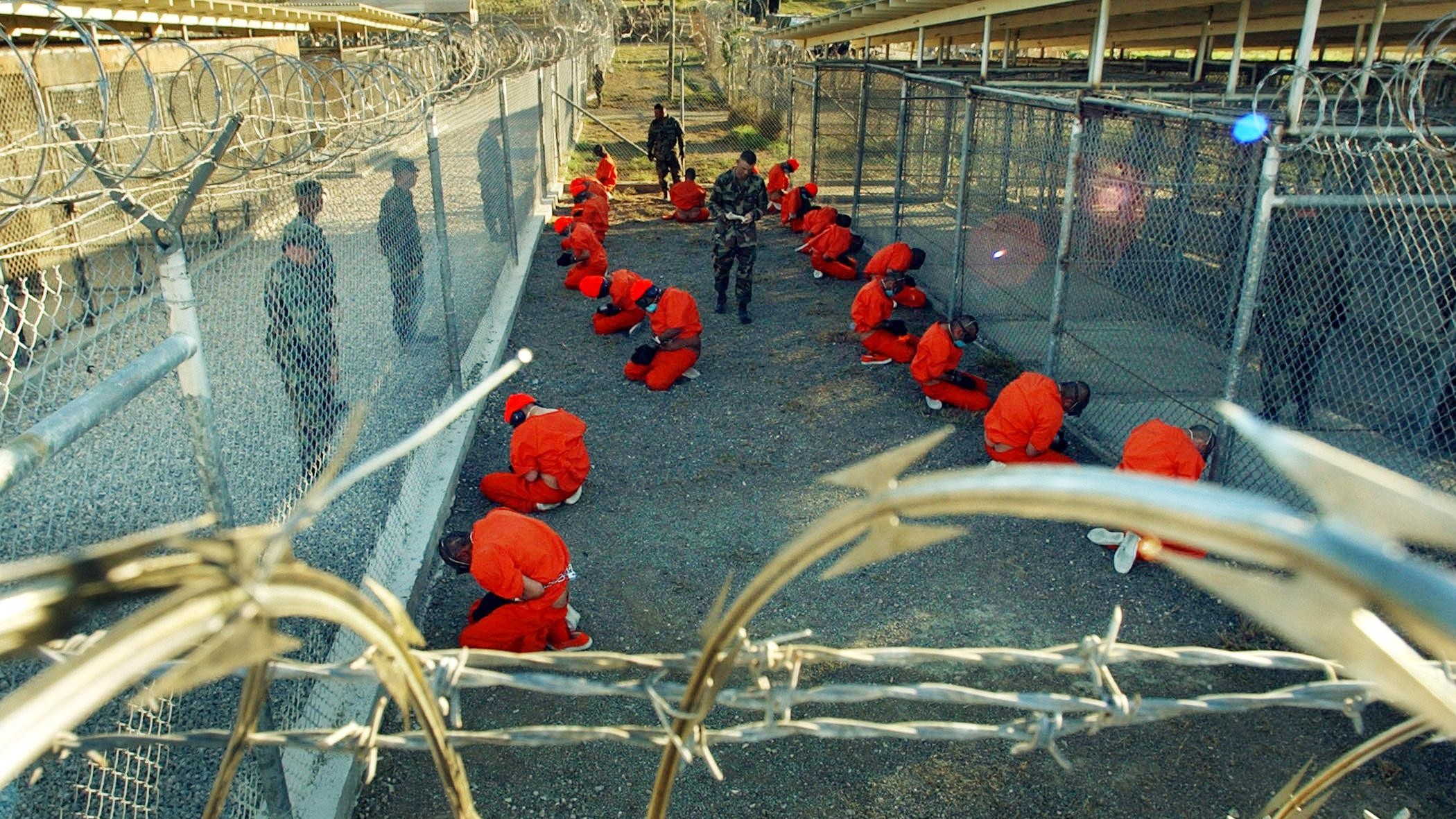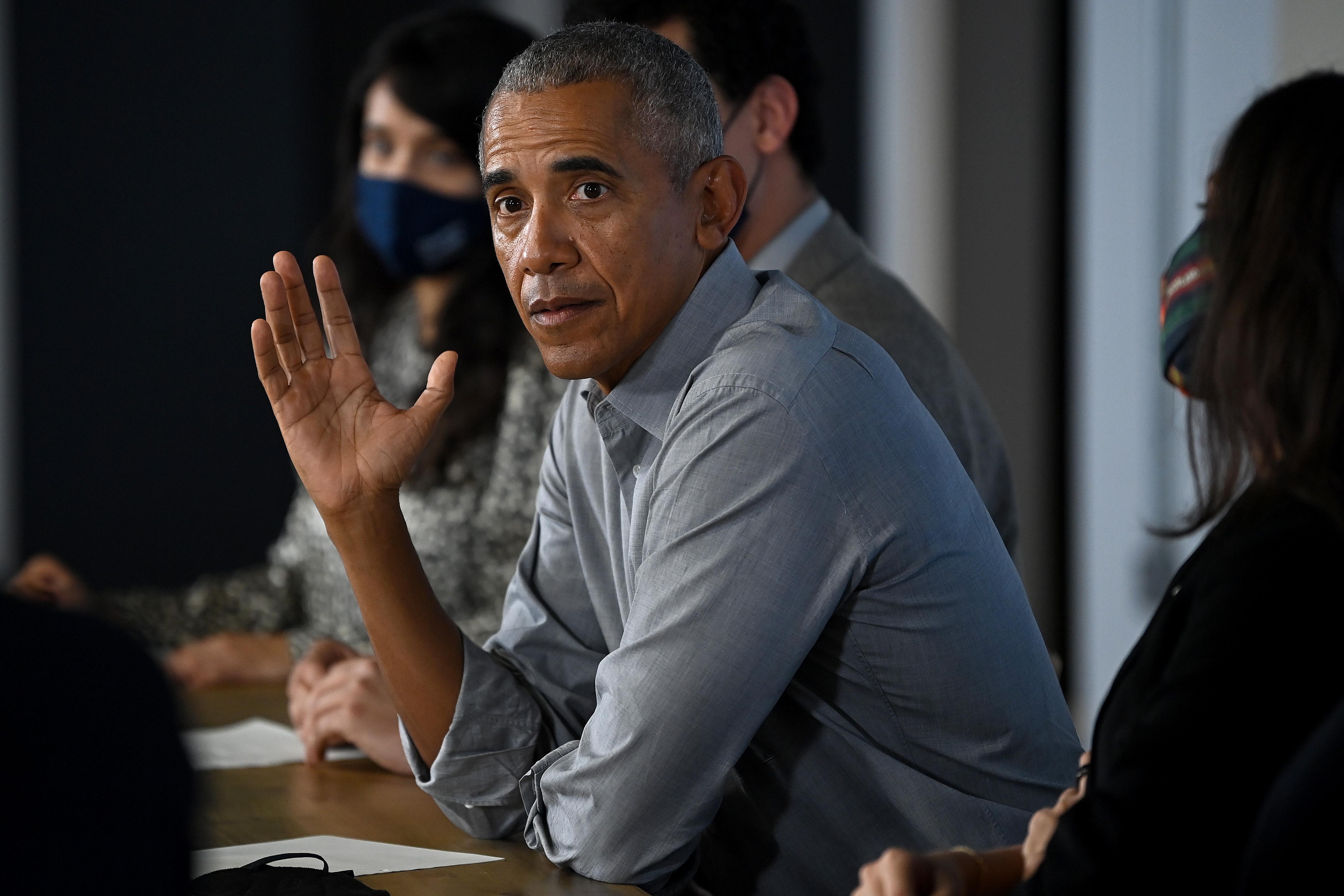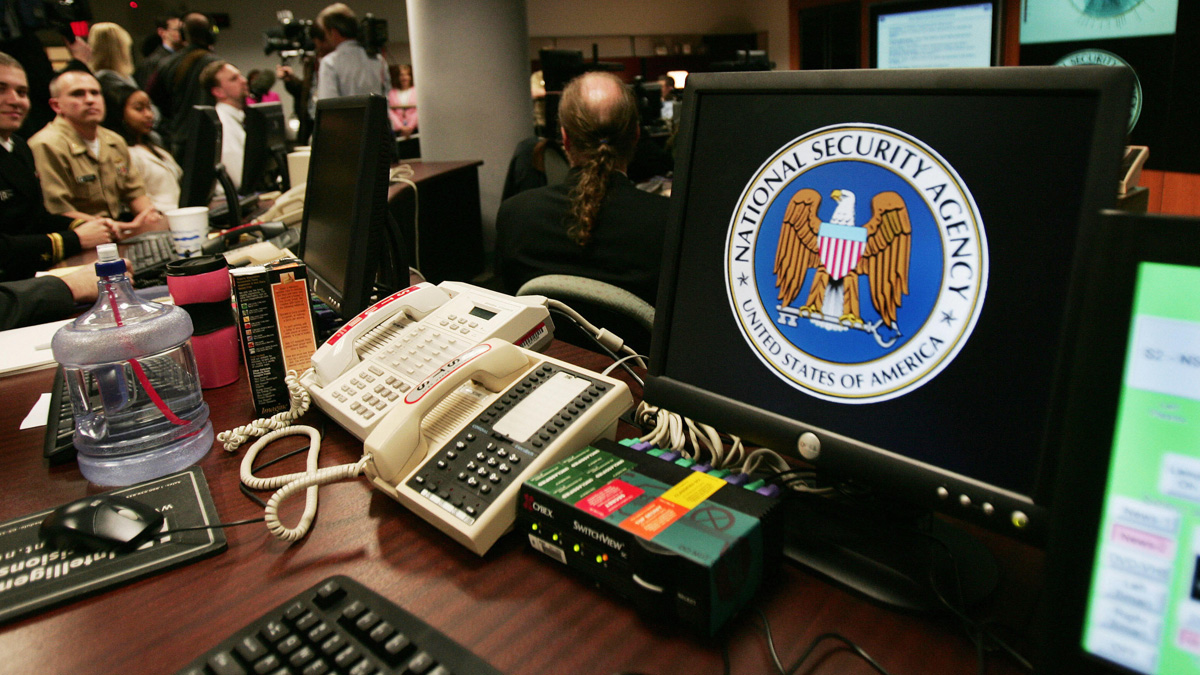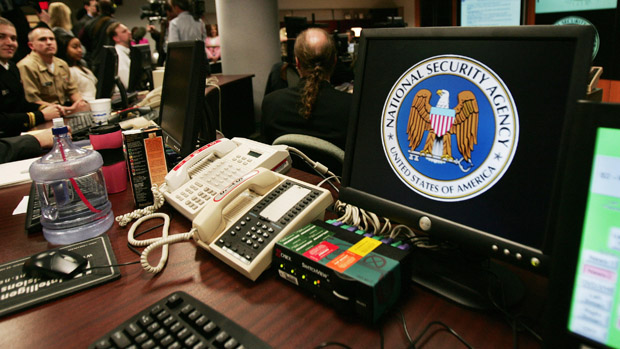Will Obama rein in his spies and let Snowden off? Don't bet on it
The US president is considering 46 proposals to reform surveillance: expect window-dressing

A free daily email with the biggest news stories of the day – and the best features from TheWeek.com
You are now subscribed
Your newsletter sign-up was successful
IS PRESIDENT OBAMA planning to start his year by offering an amnesty to National Security Agency super-leaker Edward Snowden and reining in the snoopers at America's superspy agency?
The answer to the first is “no”. This is despite the highly unusual demand for just that from the New York Times, America’s most powerful newspaper, and from The Guardian, which first published Snowden’s trove.
The answer to the second question is “maybe”.
The Week
Escape your echo chamber. Get the facts behind the news, plus analysis from multiple perspectives.

Sign up for The Week's Free Newsletters
From our morning news briefing to a weekly Good News Newsletter, get the best of The Week delivered directly to your inbox.
From our morning news briefing to a weekly Good News Newsletter, get the best of The Week delivered directly to your inbox.
Obama's beach reading on his annual holiday in Hawaii, according to the White House flaks, has included the 300-page review from a panel of experts, chosen by him amid the firestorm of Snowden’s revelations last summer, on possible ways to reform the structure and practices of the FBI and the NSA, with its unbridled collection of meta-data: e-mails, phone calls, Facebook content and so on.
The next step will be an Obama speech before the nation’s TV cameras, and the launching of a “process” of debate, consultation, Congressional shenanigans and court hearings which may, or may not, eventually lead to a dimming of the lenses with which Big Brother watches the citizens of the world on behalf of Uncle Sam.
The prospect of telephone calls around the globe going unlogged and social media messages going unnoticed anytime soon is remote.
But there is already a more pertinent question in the air. Is Obama actually thinking of altering the current balance between “privacy” and “security”, between Big Brother and citizen or subject, or is he just interested in the window dressing?
A free daily email with the biggest news stories of the day – and the best features from TheWeek.com
His declared aim is “to restore the public faith” in the security services. That is not the same thing as closing the bedroom blinds.
As Daniel Klaidman writes for the Daily Beast, in seeking an independent review by a panel of experts Obama's worry "was not that the government had abused the privacy rights and civil liberties of Americans. Rather… Obama was concerned that the flood of leaks had badly eroded trust in the intelligence community. He came to believe that restoring that trust was in the vital national security interests of the country."
Obama was accused of filling his panel of experts with people he knew personally. But, says Klaidman, "administration officials and panel members say he in no way sought to tilt the outcome in one direction or the other. In the end, he got 46 recommendations that, all told, would fundamentally, if not radically, restructure and rein in the government’s most intrusive surveillance polices. The question now is, will he adopt them?”
There have been hints – leaks? - of some of those 46 recommendations. Some might help restore faith in American process, if not in liberty itself.
One, for instance, suggests that the FBI should be forced to go to a federal judge to issue a National Security Letter, a form of subpoena much expanded by the post-9/11 Patriot Act which the Bureau currently issues without supervision to demand evidence, records, files, computer discs and, of course, records of phone and computer traffic. The FBI is already fighting that idea.
A second, aimed directly at the NSA, is to transfer the responsibility for “maintaining” records of phone and internet traffic from the NSA to the telephone and internet companies, so that the spooks themselves would not be gathering the information until they thought they might need it.
It comes to exactly the same thing from the point of view of the spied upon, but the window would be re-dressed. The civil liberty lawyers would have to go after private companies rather than spooks, who could once again be noble guardians at the gate.
It is as absurd as it sounds. The telephone and internet moguls, already profoundly embarrassed by Snowden, are furious.
But it might be exactly what Obama meant when in response to a question on NSA reform he told his final press conference of 2013 that there “may be another way of skinning the cat”.
The debate is not how to spy but how much to spy, and it is that which is highlighted by the New Year’s Day editorials in the New York Times and The Guardian.
“Considering the enormous value of the information he has revealed and the abuses he has exposed,” thundered the Times, “Mr. Snowden deserves better than a life of permanent exile, fear and flight. He may have committed a crime to do so, but he has done his country a great service.
"It is time for the United States to offer Mr. Snowden a plea bargain or some form of clemency that would allow him to return home, face at least substantially reduced punishment in light of his role as a whistle-blower, and have the hope of a life advocating for greater privacy and far stronger oversight of the runaway intelligence community.”
The newspaper listed six specific activities exposed by Snowden which were either illegal, unconstitutional or, at the least, an abuse of power, including a straight lie by an Obama official to Congress, a federal crime which has gone unpunished and even unremarked by Obama.
The Guardian added a British voice: “We hope that calm heads within the present administration are working on a strategy to allow Mr Snowden to return to the US with dignity, and the president to use his executive powers to treat him humanely and in a manner that would be a shining example about the value of whistleblowers and of free speech itself.”
Fat chance. This is an election year - the midterms come on 4 November - and the warm-up for the would–be presidential candidates of 2016. The only argument that counts is about votes. There will be very few in pleading for a small man denounced as a spy, a traitor and a criminal by almost every elected functionary in Washington, from Obama downwards.
That is the true measure in the balance between power and privacy in America.
-
 Why are election experts taking Trump’s midterm threats seriously?
Why are election experts taking Trump’s midterm threats seriously?IN THE SPOTLIGHT As the president muses about polling place deployments and a centralized electoral system aimed at one-party control, lawmakers are taking this administration at its word
-
 ‘Restaurateurs have become millionaires’
‘Restaurateurs have become millionaires’Instant Opinion Opinion, comment and editorials of the day
-
 Earth is rapidly approaching a ‘hothouse’ trajectory of warming
Earth is rapidly approaching a ‘hothouse’ trajectory of warmingThe explainer It may become impossible to fix
-
 A history of Guantánamo Bay
A history of Guantánamo BayThe Explainer War of Terror's 'symbol of torture, rendition and indefinite detention' is subject of new Serial podcast series
-
 Obama calls on Americans to support sanctions against Russia despite 'economic consequences'
Obama calls on Americans to support sanctions against Russia despite 'economic consequences'Speed Read
-
 NSA cyber weapons 'hacked' by mysterious Shadow Brokers
NSA cyber weapons 'hacked' by mysterious Shadow BrokersSpeed Read Online group threatens to auction best National Security Agency files to the highest bidder
-
 Patriot Act expires: what does it mean for US national security?
Patriot Act expires: what does it mean for US national security?Speed Read Intelligence agencies warn of threat to counter-terrorism operations, but privacy campaigners are unconvinced
-
 NSA mass surveillance 'illegal', rules US federal court
NSA mass surveillance 'illegal', rules US federal courtIn Depth Landmark ruling hailed as 'huge step' for individual Americans' rights, but the fight is far from over
-
 US Centcom's social media hacked by Islamic State supporters
US Centcom's social media hacked by Islamic State supportersSpeed Read 'American soldiers, we are coming, watch your back' – threats posted on Centcom's Twitter feed
-
 Boom! for US arms-makers as war on IS brings in billions
Boom! for US arms-makers as war on IS brings in billionsIn Depth Wall St cheers as US bombs are used to blow up US-made equipment that will all need replacing
-
 Syria: does Obama know for sure who his 'friends' are?
Syria: does Obama know for sure who his 'friends' are?In Depth Family of beheaded journalist claim he was sold to IS by 'moderates' Obama is now supporting